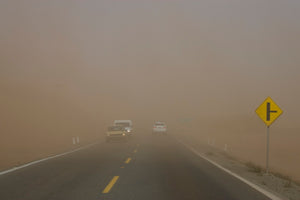How To Evacuate During a Hurricane or Tropical Storm
During intense hurricanes, evacuating should be the best option to undertake. Though some people may consider staying in their homes, evacuation is vital for people in the following circumstances:
-Houses built on floodplains
-Living in mobile homes
-If it is a recommendation from local officials
Evacuating as early as possible is the best thing to do because it relieves some of the stresses associated with it.
Below are some of the things to do during the evacuation period.
1. Plan for evacuation

Evacuation can sometimes be nerve-wracking when it comes to extra costs that are associated with it. In such situations, the first step is to ask your local emergency management team if there are any plans for community evacuation. It would be best if you ask them to provide you with a list of evacuation routes.
2. Confirm you assemble all of your supply kits

Make sure that all the survival materials are in order when planning to evacuate. Buy all the essential food from stores and groceries early enough before they run out and to prevent being caught up by crowds when hurricanes are nearing.
3. Plan for a evacuation destination

Designated disaster areas may be crowded or may not have resources you might require during hurricane season. Make plans with your family members and friends who live off of hurricane zones to accommodate you during the period. It's even better to make several pre-plans so that in case of any unexpected eventuality in one, you'll still be safe.
4. Leave your home safe

Before evacuating, ensure that you can shut off your home power supply, water supply, and gas supply at their main switches. It is one of the preventive measures of keeping your home safe.
5. Avoid running low on car fuel

Keep your car fueled and serviced if evacuation happens. Remember, at this time, everyone in your neighborhood is evacuating, including petrol and gas station attendants.
How to Travel
When vacating, you should be very keen on what the local authorities say about evacuation routes. The police know the road that is safe for you, and roads that are not affected by jams. As stated earlier, make sure your car does not run low on fuel. Communication is an essential tool when evacuating. So it would be best if you keep your phone on and your radio system alert.
Are you also worried about your pet? Prepare an emergency kit for them. Plan prior arrangements to take them to your relatives or kennels outside of the affected areas. During this time, be sure that they are well covered with collars, licenses, and rabies tags. Use transportation carriers when carrying them to make traveling easy.
Finally, it will be best to provide the information you've learned above to your neighbors and the citizens at large to keep everyone alert.



